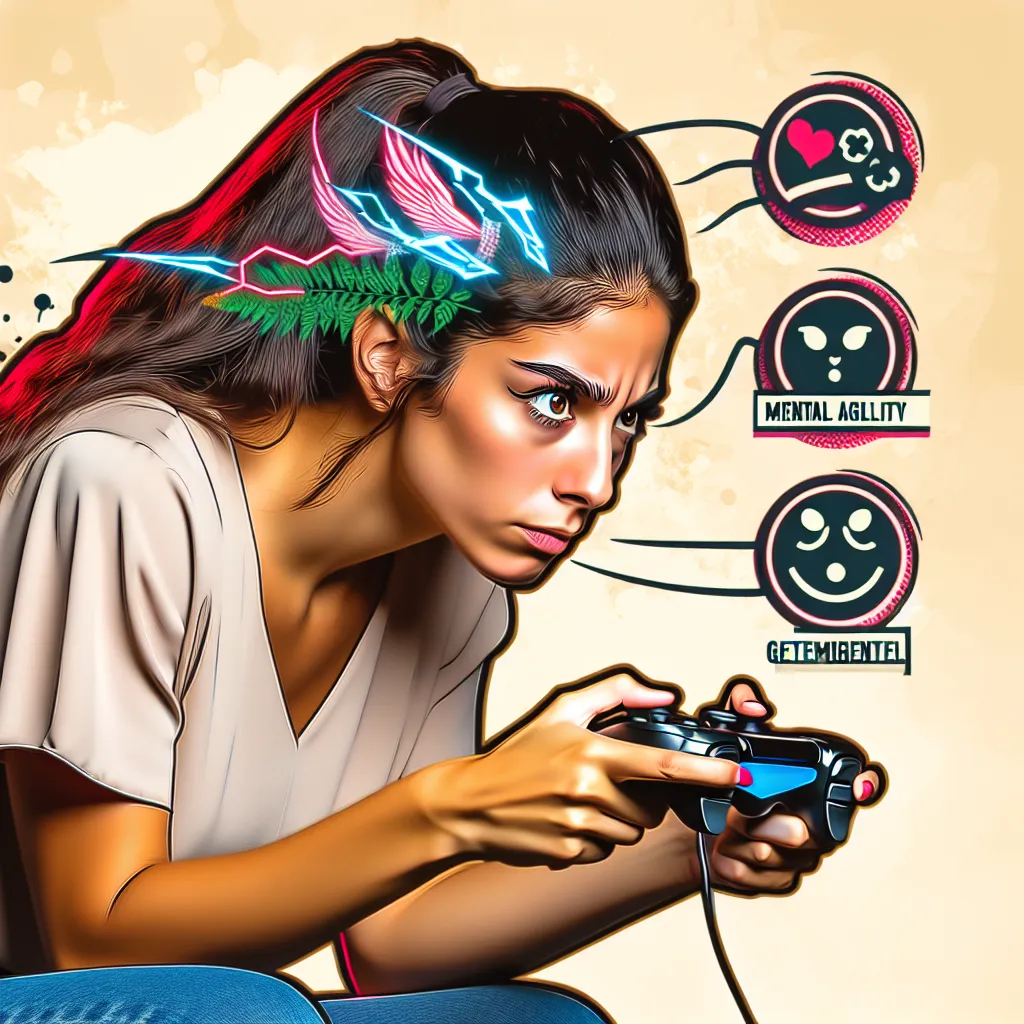The Impact of Video Games on Memory and Attention
Research has shown that video games have a significant impact on cognitive abilities, particularly in the areas of memory and attention. The interactive and engaging nature of video games requires players to constantly process and remember new information, which in turn can enhance their memory capacity. Moreover, action-based video games have been found to improve visual attention and spatial skills. This is because gamers are required to multitask and make quick and accurate decisions in a dynamic environment, which can lead to improvements in their ability to focus and sustain attention.
A study published in the journal Psychological Science found that individuals who played action video games for a certain amount of time each day showed improvements in their ability to track multiple objects, useful in tasks such as driving or reading small print. Additionally, research has demonstrated that playing strategic video games can enhance working memory and problem-solving skills, as players need to plan and execute complex strategies, often while keeping track of multiple objectives simultaneously.
However, it is important to note that excessive gaming can lead to negative effects on memory and attention, as it may lead to decreased time spent on other activities that are essential for cognitive development, such as reading, physical exercise, and social interaction. Therefore, while video games can have a positive impact on memory and attention when played in moderation, it is crucial to maintain a balance with other cognitive-stimulating activities.
Enhancing Problem-Solving Skills Through Gaming
Video games have long been a source of controversy, with concerns about their impact on cognitive abilities at the forefront of the debate. However, recent research suggests that certain types of video games can actually enhance problem-solving skills. This has prompted a shift in the perception of gaming, from being seen as purely recreational to being recognized as a potential tool for cognitive development.
One way in which video games can enhance problem-solving skills is through the complex challenges they present to players. Many modern games require intricate problem-solving abilities to progress, often involving critical thinking, strategizing, and decision-making. Players must analyze the situation, formulate a plan, and adapt to changing circumstances, all of which are valuable skills applicable to real-life problem-solving scenarios.
Furthermore, video games often provide immediate feedback to the player’s actions, allowing them to learn from their mistakes and adjust their approach. This iterative process not only reinforces problem-solving skills but also fosters a growth mindset, encouraging players to persist in the face of failure and see challenges as opportunities for learning and improvement.
It’s important to note that the relationship between video games and cognitive abilities is complex, and not all games may have the same impact. However, the potential for enhancing problem-solving skills through gaming is a promising area for further study and exploration.
The Relationship Between Video Games and Decision Making
Video games have been a subject of interest in research concerning their impact on cognitive abilities. One of the key areas of focus has been the relationship between video games and decision making. Studies have shown that certain types of video games can have a positive influence on individuals’ decision-making skills. This is particularly evident in fast-paced action games that require players to make quick and strategic decisions in order to progress through the game. As a result, frequent players of these games tend to develop enhanced cognitive abilities related to decision making, such as improved reaction times, better problem-solving skills, and increased ability to weigh the potential outcomes of different choices.
Furthermore, research has indicated that playing video games can lead to improvements in decision-making processes, as players are often required to make choices based on incomplete information or under time constraints. This can help individuals develop the ability to make effective decisions even in real-life situations where quick thinking and analysis are necessary. Additionally, certain genres of video games, such as simulation games and strategy games, have been found to enhance players’ ability to assess risks and rewards, as well as to plan and execute strategies, which are fundamental aspects of decision making.
It is important to note, however, that the impact of video games on decision making can vary based on the specific characteristics of the games played and the individual’s gaming habits. Excessive or inappropriate gaming may have detrimental effects on decision-making abilities and overall cognitive functioning. Therefore, it is essential for individuals to engage in gaming in a balanced and mindful manner in order to harness the potential cognitive benefits associated with video games.
In conclusion, video games have the potential to positively influence decision-making processes and cognitive abilities in individuals, particularly when played in moderation and with a focus on games that necessitate quick thinking, strategic planning, and problem solving. As research in this area continues to evolve, further insights into the relationship between video games and decision making are likely to emerge, shedding light on the nuanced effects of gaming on cognitive abilities.



